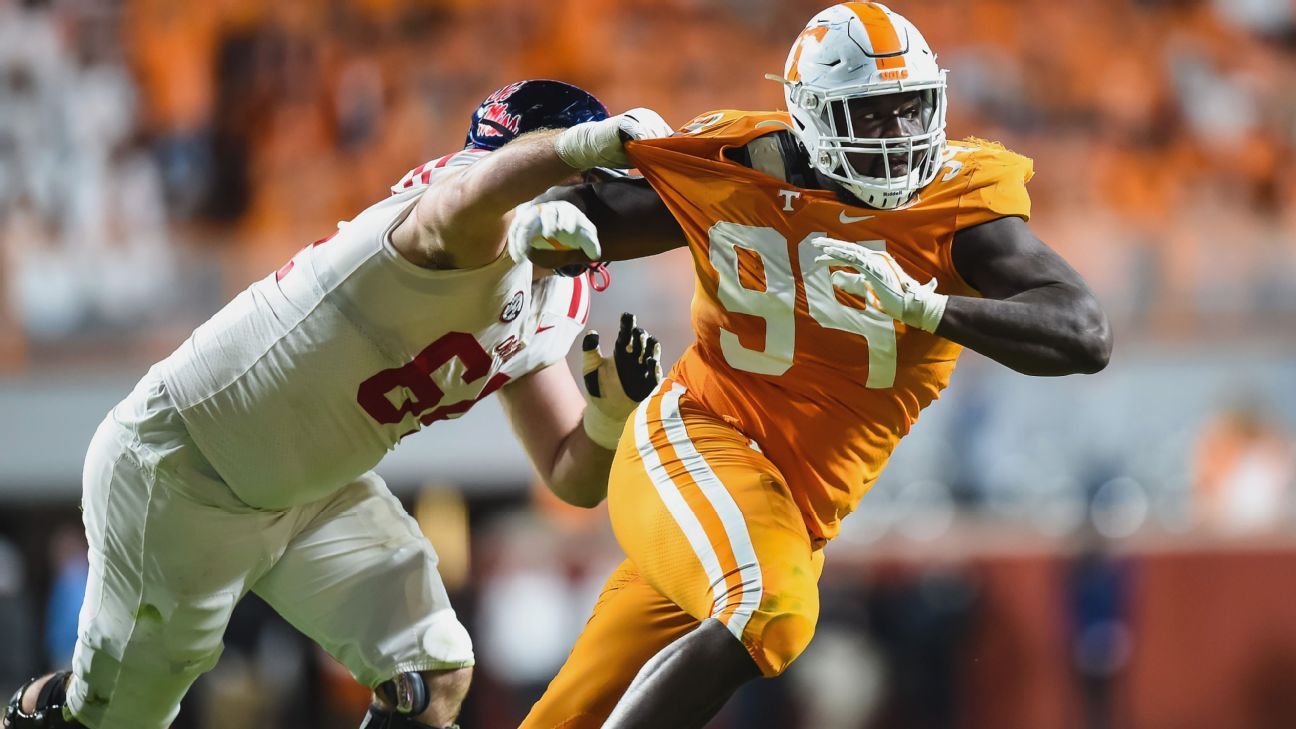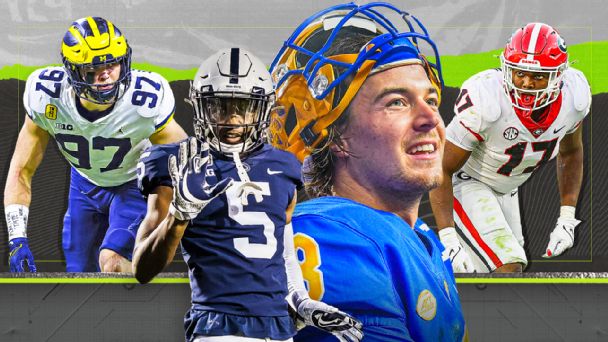
HENDERSON, Nev. — When Matthew Butler’s cell phone came to life in the fifth round of the NFL draft last month, the former Tennessee defensive lineman did not recognize the number on the screen.
“It just showed ‘Las Vegas, Nevada,'” Butler said. “So, my heart stopped a little bit.”
Indeed, when it comes to the Las Vegas Raiders and defensive linemen, the 702 area code has been getting a lot of work this offseason. Because besides drafting Butler with the No. 175 overall pick, the Raiders also selected LSU’s Neil Farrell Jr. one round earlier. Las Vegas then signed a pair of undrafted rookie defensive linemen in Notre Dame’s Myron Tagovailoa-Amosa and Iowa’s Zach VanValkenburg, both of whom are listed as ends.
This after signing a gaggle of veteran defensive tackles in free agency — from Bilal Nichols to Kyle Peko to Vernon Butler to PJ Johnson to Tashawn Bower to Andrew Billings — while re-signing Johnathan Hankins and retaining Kendal Vickers.
Oh yeah, and the Raiders traded away defensive end rusher Yannick Ngakoue and signed edge rusher Chandler Jones to pair with Pro Bowler Maxx Crosby.
The Raiders’ new regime re-shuffled its D-line deck … and then some.
“We didn’t have many [defensive linemen] on the roster to start with,” Raiders coach Josh McDaniels said. “There was a lot of opportunity at that position.”
To be fair, McDaniels was speaking specifically of the two interior defensive line positions. To be more general, with the Raiders valuing versatility in all of their players, they will show a variety of new fronts under new defensive coordinator Patrick Graham.
A 4-3 base, as has been the Raiders’ look for a decade-plus? Sure.
What about a 3-4, which more closely resembles Graham’s sensibilities? As McDaniels has said since he was hired in January, a base defense is basically a nickel now. So you need interchangeable pieces, and the more positions one can play, the more playtime said player will get.
Which is why you shouldn’t read too much into Jones being listed as a linebacker on the team’s transactions page, or Farrell as a defensive lineman, or Tagovailoa, who trends as a classic “tweener,” as an end.
“During my career at LSU,” Farrell said, “I played defensive end. I played defensive tackle. I played nose guard. So whatever the team needs, I’m willing to do.”
Plus, the AFC West is loaded at quarterback, with Russell Wilson joining the Denver Broncos to add to Patrick Mahomes with the Kansas City Chiefs and Justin Herbert with the Los Angeles Chargers.
Then there’s this: the Raiders have ranked in the bottom half of the NFL in scoring defense in 19 straight seasons, the longest such streak by any team since 1970, according to ESPN Stats & Information.
No wonder Las Vegas has gone so heavy on the D-line this offseason.
In Farrell, the Raiders got a 6-foot-4, 319-pound fifth-year senior who had 45 tackles, 9.5 for a loss, with two sacks for LSU last fall. Pro Football Focus had the two-time SEC Academic Honor Roll member fourth in FBS with 24 run stops, 10 of which were either for no gain or a loss.

Butler, at 6-4, 295 pounds, was also a fifth-year senior who blossomed last season. He played an SEC-high 726 snaps and led Tennessee’s defensive linemen in tackles (47) while being fourth in tackles for loss (8.5) and third in sacks (5) with seven QB hurries and a forced fumble. PFF had him in the top 10 of SEC D-linemen in rush defense.
The 6-2, 270-pound Tagovailoa-Amosa, who played five years at Notre Dame (sensing a trend yet?) and was a team captain, had two sacks last season while the 6-4, 263-pound VanValkenburg played three years at Iowa after transferring from Division II Hillsdale. He had five sacks as a senior.
As McDaniels put it, the Raiders have been taking “a few swings” on the defensive line this offseason, from free agency through the draft and the UDFA signings.
“Like I said, we’re going to need some depth there in camp anyway,” McDaniels said. “We are going to improve the competition at each position that we can, and I think we’ve put a group in there that’ll do that now.”
